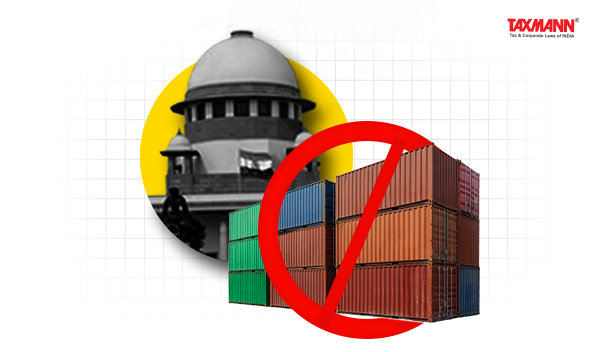Detention of Goods Justified as Assessee Failed to Prove Ownership of Goods in Transit | HC
- Blog|News|GST & Customs|
- 2 Min Read
- By Taxmann
- |
- Last Updated on 21 February, 2025

Case Details: HDB Financial Services Ltd. vs. State of U.P. - [2025] 171 taxmann.com 238 (Allahabad)
Judiciary and Counsel Details
- Arun Bhansali, CJ. & Vikas Budhwar, J.
-
Amit Shukla, for the Petitioner.
-
Ankur Agarwal, S.C. for the Respondent.
Facts of the Case
The petitioner, engaged in the transportation of goods, faced the detention of its vehicle carrying goods and imposition of a penalty under Section 129(3) of the Central Goods and Services Tax Act, 2017 (CGST Act). The vehicle was intercepted while moving goods, and the authorities imposed a penalty citing the absence of an e-way bill. The petitioner contended that the goods were merely being transferred to its parking yard and, therefore, did not require an e-way bill. However, despite having 15 days to claim ownership, the petitioner failed to take appropriate action. Upon rejection of its submissions, the petitioner approached the High Court, challenging the validity of the penalty order.
High Court Held
The Hon’ble High Court held that the writ petition was not maintainable due to the petitioner’s inaction and the availability of an alternative statutory remedy. It was observed that the petitioner had an opportunity to establish ownership of the goods within the statutory timeframe but failed to do so. Further, the court noted that the petitioner’s assertions were casual and lacked substantiation. Given the existence of an appellate remedy under the CGST Act, the High Court dismissed the petition, leaving it open for the petitioner to avail the alternative remedy, with the benefit of Section 14 of the Limitation Act, 1963.
Disclaimer: The content/information published on the website is only for general information of the user and shall not be construed as legal advice. While the Taxmann has exercised reasonable efforts to ensure the veracity of information/content published, Taxmann shall be under no liability in any manner whatsoever for incorrect information, if any.

Taxmann Publications has a dedicated in-house Research & Editorial Team. This team consists of a team of Chartered Accountants, Company Secretaries, and Lawyers. This team works under the guidance and supervision of editor-in-chief Mr Rakesh Bhargava.
The Research and Editorial Team is responsible for developing reliable and accurate content for the readers. The team follows the six-sigma approach to achieve the benchmark of zero error in its publications and research platforms. The team ensures that the following publication guidelines are thoroughly followed while developing the content:
- The statutory material is obtained only from the authorized and reliable sources
- All the latest developments in the judicial and legislative fields are covered
- Prepare the analytical write-ups on current, controversial, and important issues to help the readers to understand the concept and its implications
- Every content published by Taxmann is complete, accurate and lucid
- All evidence-based statements are supported with proper reference to Section, Circular No., Notification No. or citations
- The golden rules of grammar, style and consistency are thoroughly followed
- Font and size that’s easy to read and remain consistent across all imprint and digital publications are applied



 CA | CS | CMA
CA | CS | CMA
